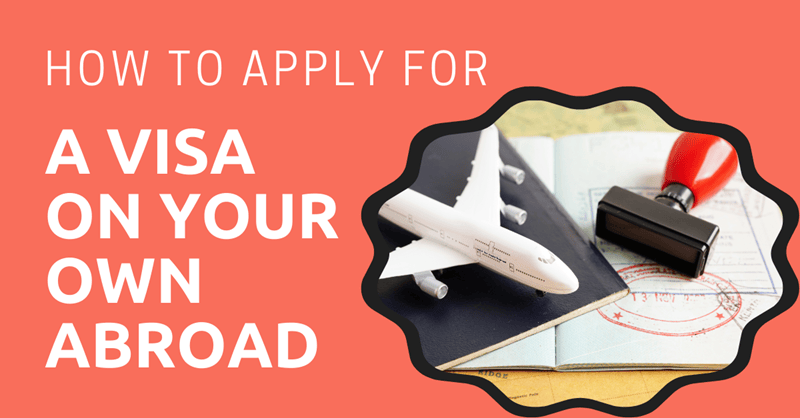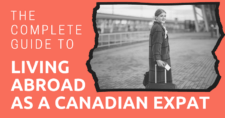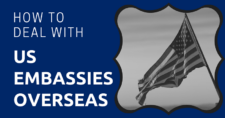
This article will take approximately 8 minutes to read. Don't have the time right now? No worries. Email the ad-free version of the article to yourself and read it later!
Navigating the world of international visas can be a daunting endeavor venturing abroad for myriad reasons ranging from leisure to business, education to retirement.
Each country, with its unique set of regulations and visa types, demands thorough research and comprehension to ensure one’s stay is both legal and hassle-free.
This article serves as a comprehensive guide, shedding light on the most common visa categories available to expats abroad and offering advice on determining which visa best aligns with your purposes.
Whether you’re planning a short holiday, looking to further your education, or seeking to settle down for an extended period, understanding the nuances of visa requirements is the key to a smooth overseas experience.
Disclaimer: This article may include links to products or services offered by ExpatDen's partners, which give us commissions when you click on them. Although this may influence how they appear in the text, we only recommend solutions that we would use in your situation. Read more in our Advertising Disclosure.
Contents
- Determine the Type of Visa You Need
- Tourist Visa
- Work Visa or Business Visa
- Research the Destination Country's Visa Requirements
- Use Social Media Correctly
- Document Preparation Tips
- Online vs. In-person Applications
- Do I Need to Make an Appointment?
- Do I Need to Use a Visa Agent?
- Stay Up-to-Date with Visa Regulations
- Other Useful Tips
Determine the Type of Visa You Need
For most countries in the world, common visas for expats can be categorized into these:
Visa Exemption
With a visa exemption, you can enter certain countries without having to apply for a visa. You can find a full list from Wikipedia. For example, here’s a link for Americans.
The primary purpose of visa exemption is for travel.
Therefore, it’s strongly advised not to abuse it by doing a border bounce (essentially leaving the country and reentering it within a few days) because you might soon be banned from entering that country.
Tourist Visa
A tourist visa allows you to stay in a country longer than visa exemption.
While it might be tempting to continually obtain a tourist visa for long-term stays, it’s not recommended. Doing so might result in a ban from entering that country in the future.
Moreover, it will be more challenging to apply for other types of visas if you have a history of abusing the tourist visa.
Student or Education Visa
To obtain a student or education visa, you must enroll in an educational program. This could be a school, university, or even language schools.
A student visa is only for a short-term stay. It may be available only for a year or two. After that, you need to find other types of visa.
Work Visa or Business Visa
Contrary to popular belief, in most countries, you cannot obtain a work visa on your own.
To secure a work or business visa, you must first secure employment with a company in that country, and the company will then assist you in obtaining the visa.
While some believe they can establish their own company to grant themselves a work visa, it isn’t as straightforward. If you’re considering setting up a company in any country, it should primarily be for business, not merely to obtain a visa.
Typically, it’s not worth the effort.
Retiree Visa
A retiree visa usually has two primary requirements: age and financial requirements. Some countries might also require health insurance.
Normally, you can renew your retiree visa indefinitely as long as you meet the visa requirements.
Marriage Visa
A marriage visa is typically available to those who legally marry a local citizen. If you’re male, there might be additional financial requirements.
A significant drawback of a marriage visa is that if the marriage ends, you’ll need to secure a different type of visa.
It’s essential to note: marry for love, not for a visa.
Dependent Visa or Family Visa
If you have a family member with a long-term visa, such as a work visa or permanent residency, you might qualify for a dependent visa.
These visas are relatively easy to obtain due to human rights considerations.
But relying on them for extended stays isn’t advisable unless your spouse holds a work visa.
For instance, if you’re visiting family, you might only secure this visa for a few months.
Investment Visa or Privilege Visa
Another prevalent visa type is the investment visa. Requirements vary by country, but commonly involve purchasing property in specific areas or investing in certain businesses.
Permanent Resident
To obtain a permanent resident permit, there are normally three main conditions:
- You must reside in that country for at least 3-5 consecutive years.
- You must pay income tax to that country for at least 3-5 years.
- If the primary language of that country isn’t English, you must be able to engage in basic conversation.
However, if you are on a retiree visa, there may not be a tax requirement.
Research the Destination Country’s Visa Requirements
Once you’ve determined the kind of visa you wish to apply for, the next step is to research its requirements.
You can get an initial idea of the necessary documentation by visiting the official embassy or consulate websites. However, don’t assume all the information is up to date.
So, it’s always advisable to contact the embassy or consulate that you are planning to do directly to find out the exact documents required.
Use Social Media Correctly
When you use social media, it’s good at informing you about the type of visa you need and its general requirements. It can also help you stay up-to-date with visa regulations.
You can also ask which embassy expats have had good experiences with.
However, don’t always rely on information from social media. Instead, trust the information from the embassy you plan to visit.
When joining a social media group for visa inquiries, you should join a group that specifically focuses on visas. Typically, the group administrators are visa experts who can offer valuable insights and tips.
Document Preparation Tips
Documentation is crucial for any visa application.
The process for preparing your documents is straightforward.
Always follow the official requirements provided by the embassy or consulate you plan to visit. Typically, after reaching out to them, they’ll provide a checklist of needed documents.
Ensure you prepare those documents precisely as required.
For instance, for a photograph, dress appropriately and ensure it matches the specified size and background color.
Avoid making assumptions based on your own standards.
For any documents you’re uncertain about, ask a specialized visa group on social media, as mentioned earlier.
Online vs. In-person Applications
Usually, for long-term visas, an in-person visit is necessary. For short-term visas, like tourist visas, online applications might suffice.
Always consult the embassy or consulate regarding the application method.
Do I Need to Make an Appointment?
This entirely depends on the embassy or consulate you plan to visit.
Do I Need to Use a Visa Agent?
This totally depends on the type of visa and the country you are applying to. In most countries, it’s entirely possible to apply for a visa on your own.
However, there are certain scenarios where a visa agent can be beneficial:
- For convenience, as they guide you on the necessary documents and reduce the time you’d otherwise spend at the immigration office or embassy.
- If your case is complex. For instance, if there are specific visa requirements you can’t entirely meet, a visa agent might know alternative routes.
On the other hand, on a country like Costa Rica in which visa regulations can be confusing, using a visa agent is recommended.
Also, in Panama, you need a visa agent, which can be an immigration lawyer, to apply for a visa.
And when you apply for a Golden Visa, in many cases, you need a visa agent who is the program’s official representative to help you apply. Many countries require this.
Stay Up-to-Date with Visa Regulations
Even after obtaining a visa, it’s wise to keep abreast of visa regulations to ensure continuous, hassle-free validity.
Engaging in a social media community can be an effective way to stay updated.
Other Useful Tips
Here are some additional pointers for those applying for a visa independently: Always dress presentably and be polite when interacting with immigration officers or embassy personnel.
This simple advice can make a significant difference.







